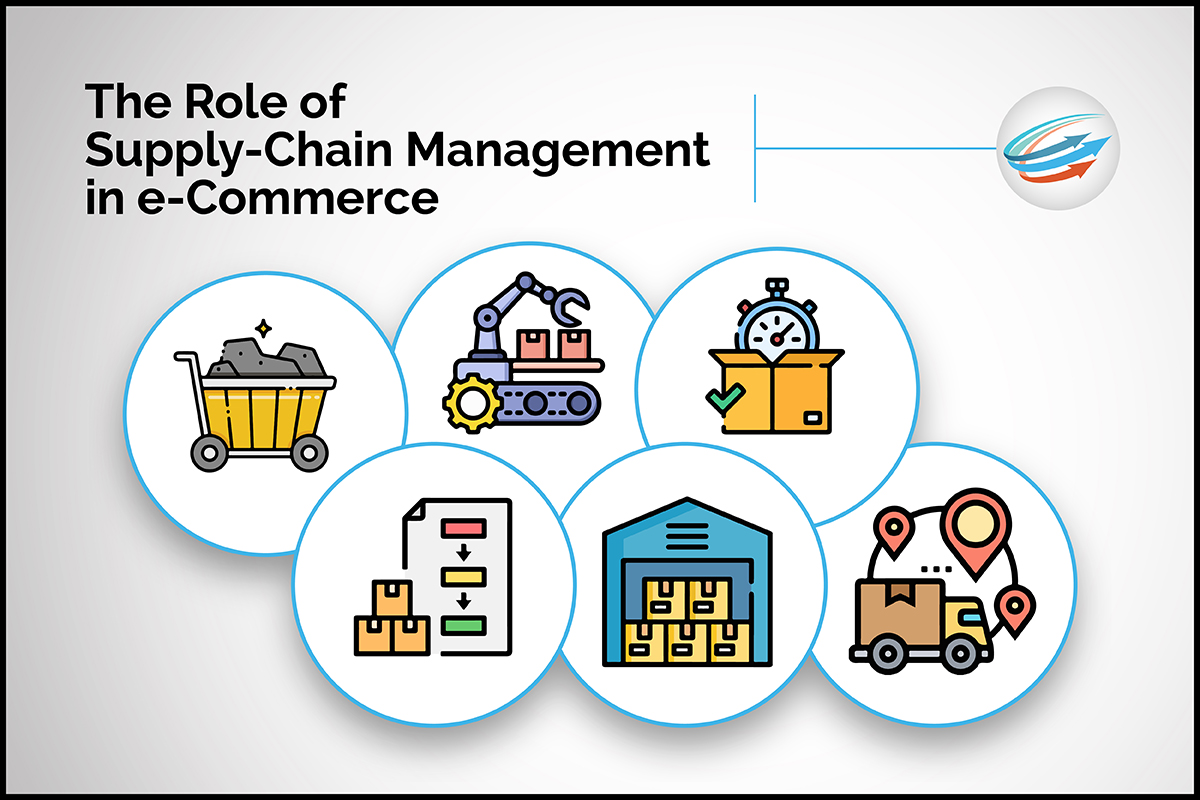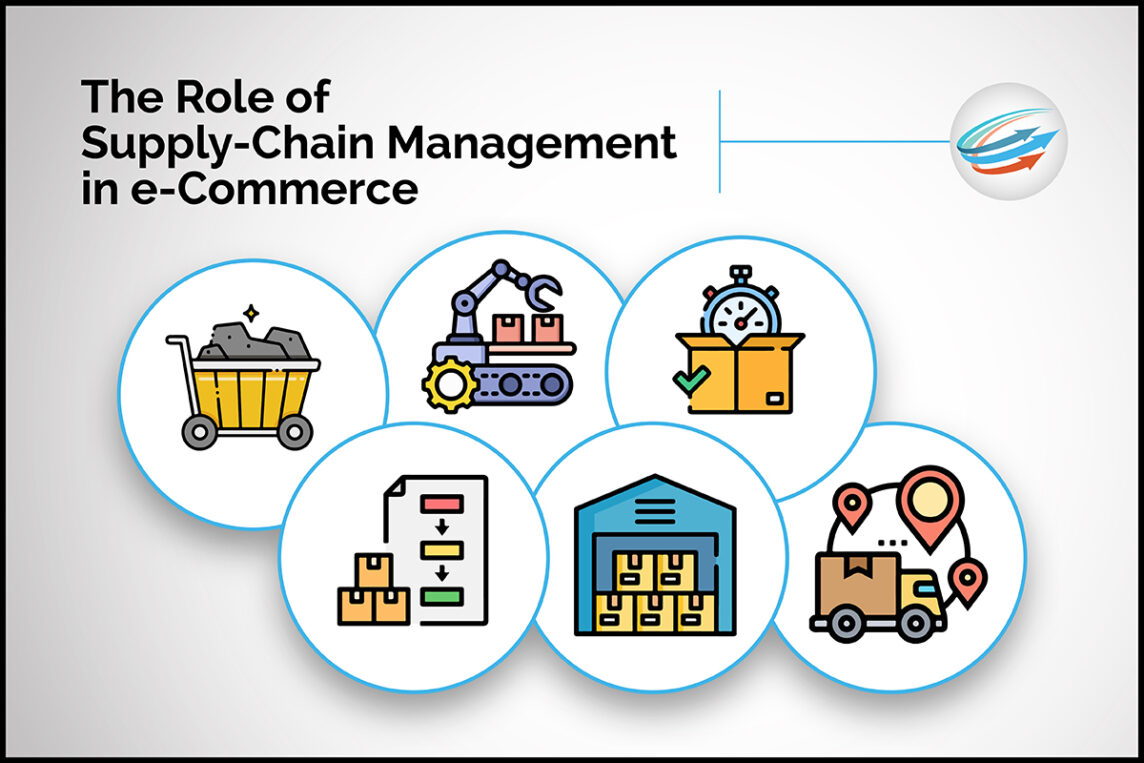
Are you a business owner in the e-commerce industry? Then you already know how quickly technology is evolving, making it more important than ever before to understand the nuances of supply chain management. If you want your online store to remain competitive and profitable, there are certain pieces of knowledge that have become essential for success. In this blog post, we’ll dive into the role of supply chain management for e-commerce businesses and the various components that go into creating a streamlined system for e-commerce fulfillment and inventory management.
What Is Supply Chain Management?
Supply chain management is a crucial process that ensures the smooth delivery of goods and services from suppliers to customers. Essentially, it refers to the management of the entire chain of activities involved in the production and delivery of products or services. Effective supply chain management is crucial in ensuring that businesses can meet customer demand in a timely and cost-effective manner while also improving profitability.
The Benefits of Supply Chain Management in E-Commerce
A well-maintained supply chain helps with cost reduction by identifying supply chain inefficiencies that can be improved upon and it can enhance the customer experience by optimizing shipping times and ensuring timely delivery of orders.
An effective supply chain in e-commerce also improves inventory management, ensuring that the right products are in the right place at the right time. In today’s fast-paced and competitive e-commerce environment, investing in quality supply chain management is essential for long-term growth and staying ahead of the competition.
The Different Stages of the Supply Chain in E-Commerce
The are various stages involved in an effective supply chain, including:
Sourcing Raw Materials
The first stage of the supply chain in e-commerce is sourcing raw materials. This involves finding and purchasing the necessary components for a product, such as fabrics, plastics, metals, or electronics. Companies must ensure that they are sourcing materials from reliable suppliers in order to ensure quality and cost-effectiveness.
Manufacturing Products
Once the raw materials have been sourced, they must then be manufactured into finished products. This involves cutting and shaping the raw materials into components that can be assembled into the final product. The manufacturing process often requires specialized equipment and skilled labor in order to ensure quality control and efficiency.
Inventory Management and Procurement
Inventory management is an essential part of e-commerce supply chain management. Companies must track their inventory levels at all times in order to ensure that they have enough stock to meet customer demand while avoiding costly overstocking or understocking issues. Additionally, companies must also procure new inventory when needed in order to keep up with customer demand.
Warehousing and Storage
Warehouses provide secure storage for products while ensuring that they are readily accessible when needed for order fulfillment or distribution purposes. Companies may also choose to outsource warehousing services if they do not have the capacity to manage it themselves.
Order Fulfillment and Processing
Order fulfillment and processing is another key component of an e-commerce business’s supply chain as it is responsible for ensuring orders are received by customers quickly and accurately. This includes verifying orders against customer records, packaging products according to customer preferences, preparing shipping labels, and arranging for delivery.
Distribution and Logistics
Distribution refers to the transportation of goods from warehouses or other storage facilities to customers’ doorsteps or other designated locations (such as stores). Logistics refers to the planning and execution of transportation activities in order to optimize costs while ensuring timely delivery of goods with minimal errors or delays along the way.
How to Optimize Your Supply Chain for E-Commerce
Below are some tips for optimizing your supply chain for e-commerce fulfillment.
Choose the Right Suppliers and Manufacturers
Choosing the right suppliers and manufacturers is essential for optimizing your supply chain for e-commerce. The quality of the products you offer will determine the success of your business, so it’s important to select reliable suppliers who can provide consistent, high-quality goods. When selecting a supplier or manufacturer, make sure to research their reputation and track record, read customer reviews, and get references from other businesses they’ve worked with.
Invest in Efficient Warehousing and Inventory Management Systems
Having an efficient warehousing and 3 in place is key for optimizing your supply chain for e-commerce. This system should include up-to-date software that tracks stock levels, order processing times, shipping costs, and more. Additionally, having a well-organized warehouse with clearly labeled shelves and bins will help ensure that orders are processed quickly and accurately.
Use a Reliable Fulfillment Partner
Using a reliable fulfillment partner is another important step in optimizing your supply chain for e-commerce. Your e-commerce fulfillment partner should have experience working with similar businesses as yours, be able to handle large volumes of orders quickly and accurately, provide competitive shipping rates, and offer excellent customer service.
Develop a Robust Returns Processing System
Returns can be an issue when it comes to e-commerce businesses, so it’s important to develop a robust returns processing system that ensures customers receive their refunds quickly and efficiently. This system should include clear return policies that are easy for customers to understand as well as processes for tracking returned items back to the warehouse or supplier in order to avoid losses due to theft or damage.
The Future of Supply Chain Management in E-Commerce
The future of supply chain management in e-commerce is an exciting one, as advances in automation and robotics take center stage. These powerful tools will help retailers streamline their operations and improve efficiency, ultimately leading to faster delivery times and happier customers.
But it’s not just about speed—sustainability is becoming an increasingly important concern in the realm of e-commerce. Retailers are looking for ways to reduce their carbon footprint and minimize waste, all while delivering quality products to their customers.
And speaking of customers, they’re more important than ever before. With the increasing focus on customer experience, retailers are looking for ways to personalize every interaction and deliver the kind of seamless service that consumers have come to expect.
Related: Benefits of Sustainable E-Commerce Fulfillment Practices
Choose APS Fulfillment, Inc. for Effective Supply Chain Management
APS Fulfillment, Inc. is an industry leader in supply chain management, providing effective and innovative solutions to organizations of all sizes. From inventory management to shipping and delivery, we offer a wealth of services that are designed to streamline operations and improve efficiency.
By choosing APS, you can focus on core competencies while leaving the logistics to the experts. Book a consultation by calling (954) 582-7450 or email [email protected].





